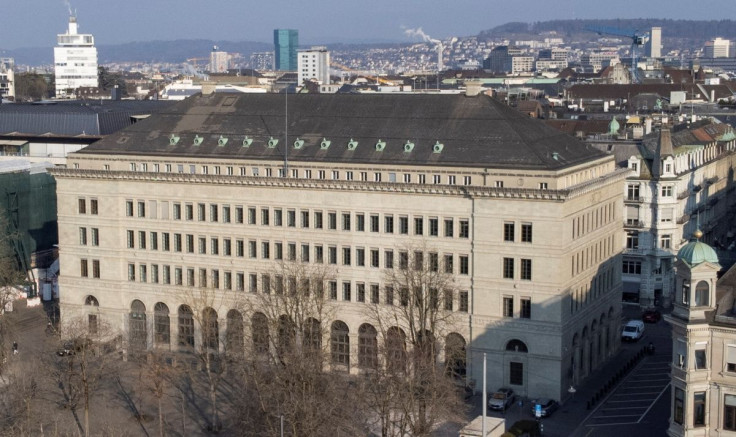Swiss National Bank Sticks To Loose Policy Despite Inflation Pickup

The Swiss National Bank has doubled its inflation forecast for this year, citing tensions including the Ukrainian war, but held fast to its expansive monetary policy on Thursday with the world's lowest interest rates.
The SNB is bucking the trend as other central banks hike interest rates to tackle surging inflation, such as in the United States and Britain.
Instead it kept its policy rates locked down at -0.75%, as unanimously forecast by economists in a Reuters poll, as well as its commitment to conduct currency interventions to stem the rise of the safe-haven Swiss franc.
The central bank also kept its description of the franc as "highly valued", the same wording it has deployed since September 2017, despite the currency recently hitting its highest level against the euro in seven years.
The SNB said Russia's invasion of Ukraine has led to a "strong increase in uncertainty worldwide", traditionally seen as a trigger for safe-haven flows into the currency, driving it its value briefly above parity against the euro this month.
On Thursday, the SNB said it took the overall currency situation and the inflation rate differential with other countries into consideration, leading analysts to comment that the central bank seemed relatively relaxed about the recent rise in the currency's value.
While the franc has since depreciated, Swiss inflation has continued to rise, hitting 2.2% in February - above the SNB's 0-2% target and its highest level since 2008.
The SNB said the Ukraine conflict would lead to higher prices, raising its inflation forecasts due to rising oil prices and supply bottlenecks.
It doubled its inflation outlook for 2022, now expecting Swiss inflation of 2.1% for the year overall. It also raised its forecast to 0.9% for 2023 from 0.6% previously and expects inflation at 0.9% in 2024.
The SNB also downgraded its economic forecasts.
But despite rising prices, the SNB decided not to follow the example of the U.S. Federal Reserve and the Bank of England, which both raised rates last week.
Still, despite it sticking to the policy script it has repeated since 2015, analysts detected the first signs of a shift in tone.
"While today's decision by the SNB to leave its policy rate on hold at -0.75% was never in doubt, it raised its conditional inflation forecast, and the end of its prolonged period of policy stasis is drawing closer," said David Oxley at Capital Economics.
"We expect it to take the cover afforded by the more hawkish global backdrop and ECB and raise rates back to zero by the end of 2023."
Maxime Botteron, an economist at Credit Suisse, said that for the first time in a very long time the SNB had acknowledged that inflation could accelerate.
"In our view, this is a small step towards a slightly more hawkish tone," he said. "Once, or if, the uncertainty related to the war in Ukraine diminishes, the SNB may well adopt a less dovish tone.
"This could translate into a long-term inflation forecast above 2% and a reassessment of the valuation of the franc. We continue to expect a first rate hike in June 2023."
© Copyright Thomson Reuters 2024. All rights reserved.




















